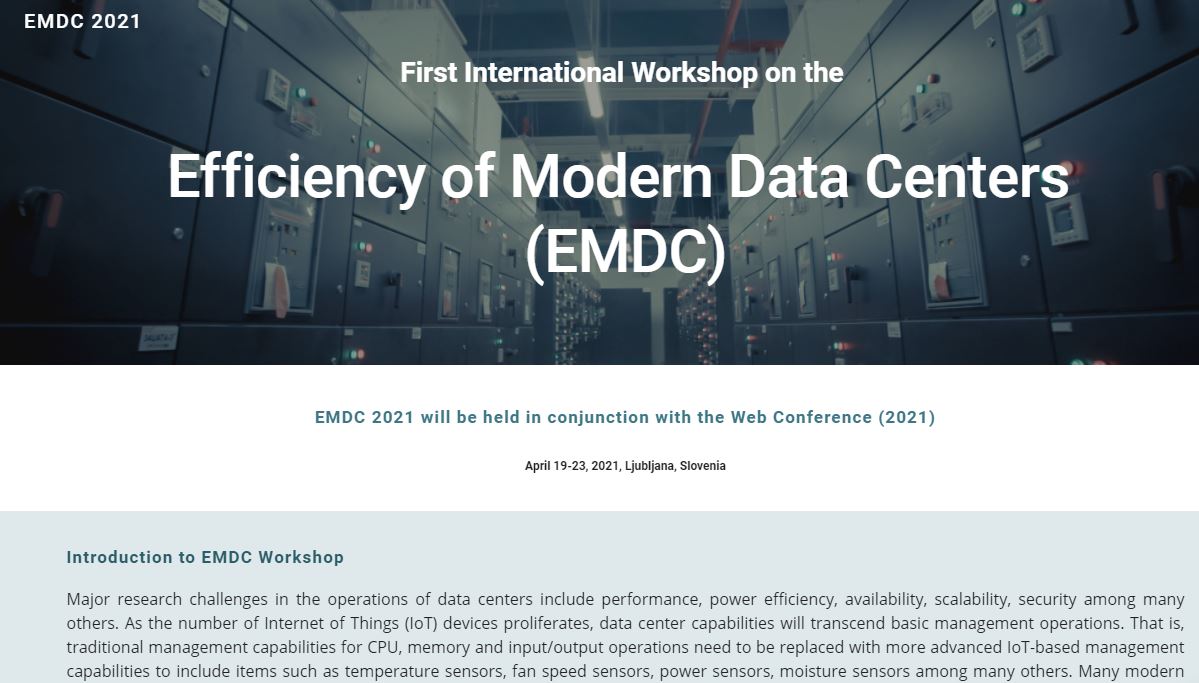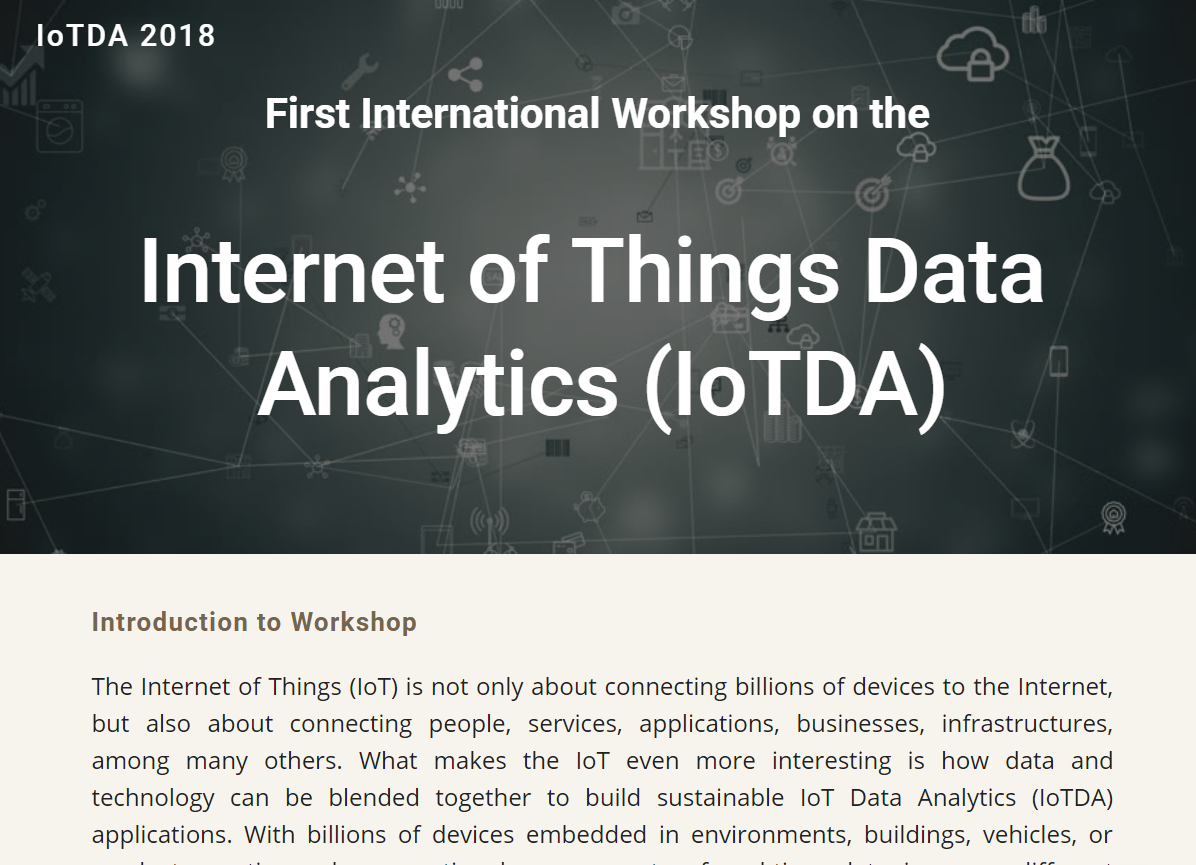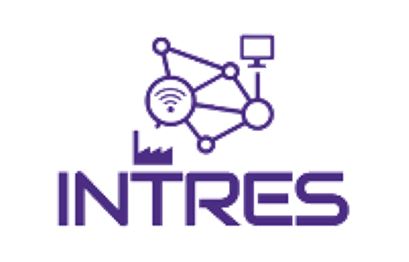Eyhab Al-Masri
Department of Computer Science and Systems University of Washington (Tacoma) Email:
 Research Profile: Google Scholar Profile
Research Profile: Google Scholar Profile
My research focuses on cloud/edge, human-centric, and IoT systems, including:
- Cloud/Edge/AI Systems
- Resource allocation, task scheduling algorithms, service migration, and data placement.
- Energy optimization in data centers, efficient cooling, demand response, and renewable energy.
- Web Services & Data Management
- Privacy-enhanced databases, policy-based access control, and secure data processing.
- Design, development and deployment of web services; microservices and serverless architectures.
- Human-Centric Computing & Intelligent Systems
- Multi-agent systems,HCI, Brain-Computer Interface, EMG, and biosignal processing.
- Human-in-the-loop, Human-Robot Interaction, UAVs, and Generative AI.
- Network Protocols, Security, Forensics
- Secure network protocols, threat detection, anomaly detection, and mitigation of DDoS attacks.
- IoT forensics, digital evidence recovery, and reconstructing IoT-related events.
I am faculty member in the Department of Computer Science, School of Engineering and Technology at the University of Washington (Tacoma). Previously, I worked in the David R. Cheriton School of Computer Science at the University of Waterloo. I completed my Ph.D. degree in Computer Science at the University of Guelph. My doctoral dissertation received an honorable mention from the Association for Information Science and Technology (ASIS&T) (2009). Previously, I completed my Masters degree in Electrical Engineering and B.Sc. degree in Computer Engineering both from Florida International University.
Teaching
Autumn 2024
@ University of Washington Tacoma
Research Publications

Efficiency of Modern Data Centers (EMDC) Workshop @ WWW 2021
First International Workshop on the Efficiency of Modern Data Centers (EMDC)

IoT Data Analytics (IoTDA) Workshop @ IEEE BIgData
International Workshop on the Internet of Things Data Analytics (IoTDA)
Mentoring
I actively work with students and collaborators. The list below highlights our collective achievements, including peer-reviewed publications authored by my students.
- Wenjun Yang (2022 - Present)
- Aaron Chen (2024 - Present)
- Derry Cheng (2024 - Present)
- Preethika Pradeep (2024 - Present)
Alumni
| Sri Vibhu Paruchuri | TETRA: Time- and Energy-Aware TOPSIS-based Resource Allocation |
| David Orriss | Observing Security in Microservices with Distributed Tracing |
| Habiba Mohamed | A Multi-Objective Approach for Optimizing Edge-Based Resource Allocation Using TOPSIS |
| Joe Chou | Detecting Security and Privacy Risks in Microservices End-to-End Communication Using Neural Networks |
| Yifeng Liu | Evaluating the Reliability of MQTT with Comparative Analysis |
| Alina Saduova | A Self-Adaptive IoT-based Approach for Improving the Decision Making of Active Surgical Robots in Hospitals |
| Ankit Singh | A Hybrid Brain Computer Interface for People with Neurological Disorders |
| Deepika Patil | Seamless Service Migration & Offloading across Mobile Edge Computing (MEC) Environments |
| James Olmsted | FogWeaver: A Multi-Objective Optimization Strategy & Characterization of Hybrid Internet of Things Environment |
| Prashanti Pathak | Using TOPSIS for Enhancing Service Provisioning Across Fog Environments |
| Harnidh Kaur | An Observability Framework for Predicting the Behavior of IoT Systems |
| ShrustiShree Sumanth | Package Theft Detection on Wyze Cameras |
| Deeksha Rao Gorige | Investigating Privacy and Security using Distributed Tracing Tools |
| Vaishali Girdhar | Enhancing Fault Tolerance of Fog-Based IoT Systems (Spring 2020, Autumn 2020) |
| Sreenavya Nrusimhadevara | CSRF A Ranking Approach for Microservices in Service Composition |
| Ayush Bandil | VTA-IH: A Fog-based Digital Forensics Framework |
| Richard Brun | MQTT Performance Across Heterogeneous IoT Platforms |
| Surbhi Goya | Real-Time Observability of Distributed Systems |
| Tejashri Joshi | A User-Centric NFV Service Recommender System |
| Wenjun Yang | Assessing Data Quality for Internet of Things (IoT) Systems |
| Hu Zhao | A User-Centered Handoff Procedure in 5G Cellular Networks |
| Navyasree Petluri | Web Traffic Prediction of Wikipedia Pages |
| Misba Momin | Detecting Heart Rate Variability using Web Services |
| Lingwei Meng | QoS-Based Cloud Service Recommender System |
| Amruthaa Rajan | Enhancing Accessibility of Machine Learning using Service Oriented Architecture |
| Ruslan Nurimbetov | Dariya Abdrakhmanova | Sanjay Vuppugandla | Ashwin Meiyappan |
| Sri Vibhu Paruchuri | Nazim Zerrouki | Yanliu Wang | Shori Yu |
| Tsung-Jui Wang | Dhruviben Kaswala | Deepthi Edakunni | Sumitha Ravindran |
| Yiming Gan | Rashad Hatchett | Simerpreet Kumar | Jyoti Shankar |
| Moran Wang | Varik Hoang | Pradnya Bhumkar | Vaishnavi Goteti |
| Poornima Dixith | Reshma Geetha | Rashmi Ramachandra | Himani Singh |
| Rajeev Suri | Danyang Xu | Xiaola Ye | Feng Gao |
| Jiaqi Wang | Zac Lu | Shubham Kabu | Ramil Zagidultdn |
| Richa Jain | Manish KC | Karan Kalyanam | Sujanasree Ratakonda |
| Bhavana Gudi | Suganya Jeyaraman | Ramya Kumar | Pooja Shrivastava |
| Bharathi Manoharan | Swetha Reddy Nathala | Ibrahim Diabate | Ming Hoi Lam |
| Josh Lee | Abdulqadir Ibrahim | Cordel Hampshire | Samuel Hart |
| Dino Jazvin | Daniel Jiang | Reuben Keller | John Batts |
| Jonathan Kim | Sharanjit Singh | Tammy Vo | Greg Gertsen |
| Diesawi Mohammodnur | Armoni Atherton | David Chau | Vecheka Chhourn |
| Charlotte Yan | Craig Robertson | Allen Whitemarsh | Minh-Huy Tran |
| Andrea Maria Moncada | Eduard Ktdmenko | Daniel Carns | Benen Adsitt |
| Christopher Marisco | Katatdna Biondi | Emmett Kang | Kyle Beveridge |
| Zhou Lu | Richard Yang | Michael Quandt | Keith Stellyes |
| Daryan Hanshee | Dino Hadzic | Marshall Freed | Haylee Ryan |
 I am currently looking for highly motivated: (a) PhD student with
background on meta-heuristic optimization, (b) post-doctoral researcher with
intuinistic fuzzy logic, (c) two capstone/thesis Master's students (Autumn 2024), and
(d) one undergraduate student (Autumn 2024). If you are interested,
please take a few minutes to
I am currently looking for highly motivated: (a) PhD student with
background on meta-heuristic optimization, (b) post-doctoral researcher with
intuinistic fuzzy logic, (c) two capstone/thesis Master's students (Autumn 2024), and
(d) one undergraduate student (Autumn 2024). If you are interested,
please take a few minutes to